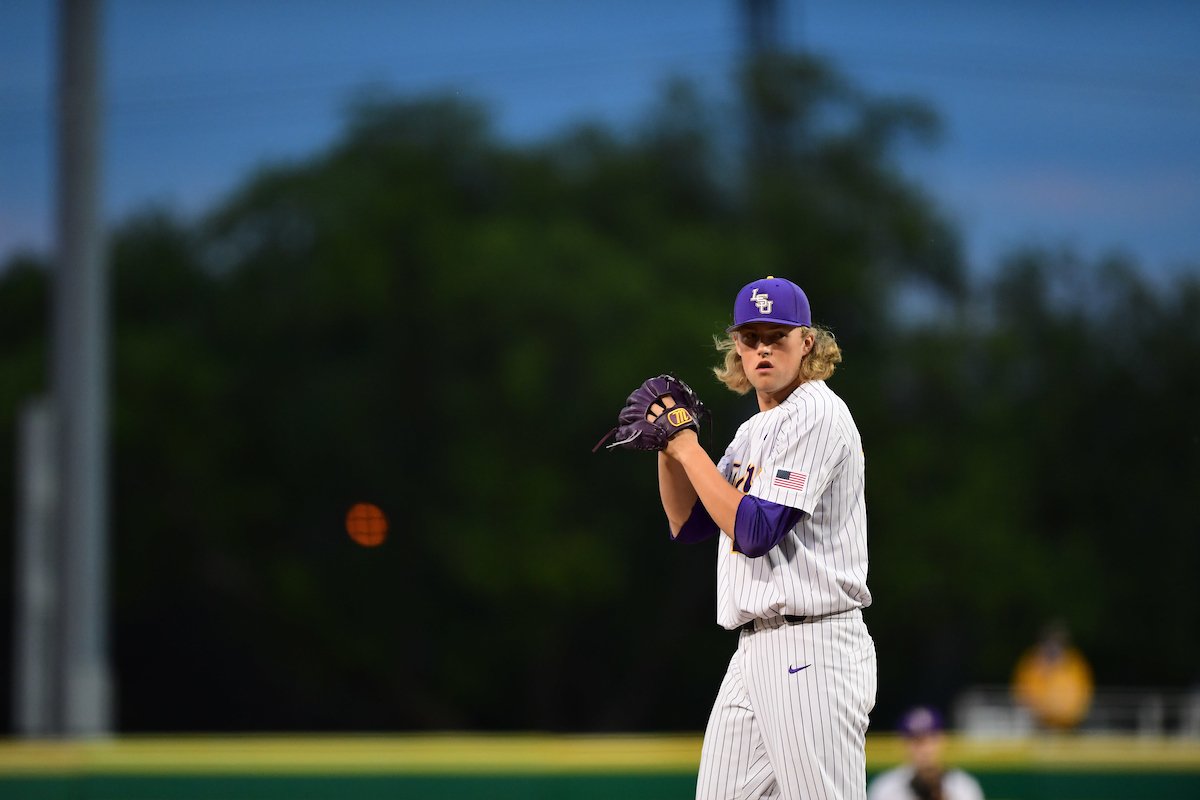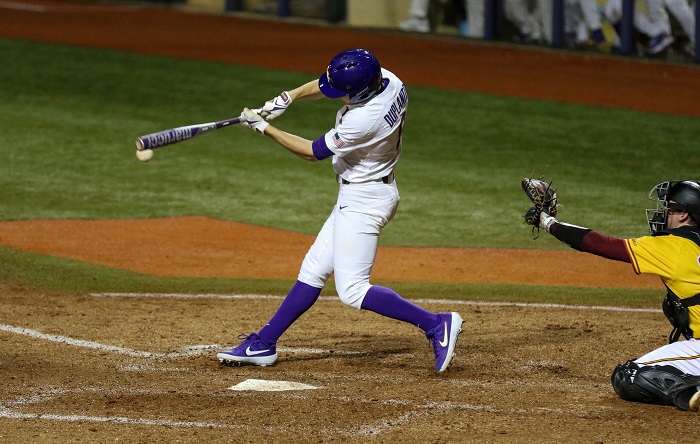
By CODY WORSHAM | Tiger Rag Editor
After an 11-day hiatus for finals, LSU (4-2) is back in action Sunday against UNC-Wilmington (4 p.m., PMAC. SECN+), and the focus is all on rotations – on defense and on the lineup card.
The Tigers returned from Maui an improved defense for 40 minutes, holding UT-Martin to 60 points on 43.8 percent shooting on in a Nov. 29 victory in their final pre-exam contest, well below LSU’s season averages of 77.6 PPG and 47.6 percent, respectively.
But defense remains the Achilles heel of Will Wade’s squad heading into Sunday’s clash with the Skyhawks (2-4), who thrive in transition – they rank 18th in the NCAA in percentage of field goal attempts coming from fast breaks – and feature Devonta Cacok (19.3 PPG, 13.0 RPG, 62.7 FG%), one of just eight D1 players averaging at least 15 points and 10 rebounds per game on 60 percent shooting.
LSU enters the contest 226th in defensive rating, per KenPom.com, with worse numbers in effective field goal percentage defense (307th), three-point defense (263rd), and two-point defense (294th). Wade’s defenses have historically ranked in the top 30 in the country in both three-point field goal percentage and in number of three-point attempts allowed, but the Tigers haven’t quite caught on yet.
“This is where I am a little bit dumbfounded,” he says. “We’ve always been pretty good on defense wherever we have been. I’ve never spent half as much time on defense as we have here. We’ve spent an inordinate amount of time on our defense year. And we are still not just very good. I bet our practice time has been 85 to 15 defense to offense.”
That ratio has held up in the finals break. LSU has stopped keeping score in practice by bucket made, and instead is scoring in terms of stops, deflections, and charges taken. The focus has been improving LSU’s point of attack defense, the on-ball defender who, in Wade’s view, has been getting beaten too easily off the bounce.
“A lot of the threes come from point of attack defense where you get put into rotation,” he says. “The closeout’s the last part you see. The issue that causes the closeout is two or three plays before that. That’s where the issue is. Once you get put in a scramble situation and you’re behind the play, it’s over at that point. The issue happens well before the three gets hit, most of the time.”
To remedy, point guard Tremont Waters studied film of Wade’s VCU team from 2016-17, which ranked 41st in defensive efficiency nationally and second in the Atlantic-10 last season. In particular, he honed in on point guard JeQuan Lewis and has started copying his post-practice regimen.
Waters asked Wade how Lewis became such a good on ball defender, particularly getting over screens, and Wade said Lewis would stay five-to-10 minutes after practice every day drilling that skill. Waters is now doing the same, and Wade hopes it pays dividends.
“We have to be better at our point of attack defense,” he says. “It starts with your point guard. Tre really wants to be that guy to set the tone for our defense. I think we’re moving in a direction where that can happen. “
Adds Waters: “I’m tired of practicing. I’m ready to get back on the court and show people we’ve been getting yelled at about defense all week, and that we’re going to come out and improve.”
FINDING FIVE
The other rotation of concern for Wade is finding LSU’s best starting five – and three or four beyond them to complete what, ideally, would be an eight-or-nine man rotation.
So far, LSU has mixed and matched lineups often. Wade started a five against UT-Martin – Waters, Skylar Mays, Randy Onwuasor, Wayde Sims, and Aaron Epps – that had not played together all season. In total, LSU has played 74 different five-man combinations in six games, per Open Look Analytics, and the key issue, Wade says, is lack of two-way players.
“Some of our guys who are pretty good on defense are pretty big liabilities on offense,” he says. “Some of our guys who are pretty good offensively are pretty big liabilities on defense. We have very few guys who are two way players. As a coach, you are mixing and matching.”
The numbers support Wade’s claim that Wayde Sims is his best two-way player. Sims, through six games, has the biggest plus-minus impact on the team when he’s on the floor vs. when he’s off. When he plays, LSU is 32 points per 100 possessions better than its opponents, an elite figure. When he sits, LSU is 15 points worse than its opponents, a team-leading 47-point swing.
“Our most solid guy on offense and defense is Wayde Sims,” Wade says. “He’s by far our most solid guy. He doesn’t wow you on offense, but he’s always moving, he’s always in the right place, he’s got good feel. Defensively, he’s rarely out of position, He can see ahead of the play, he communicates. He is our most solid guy on both ends.”




Be the first to comment